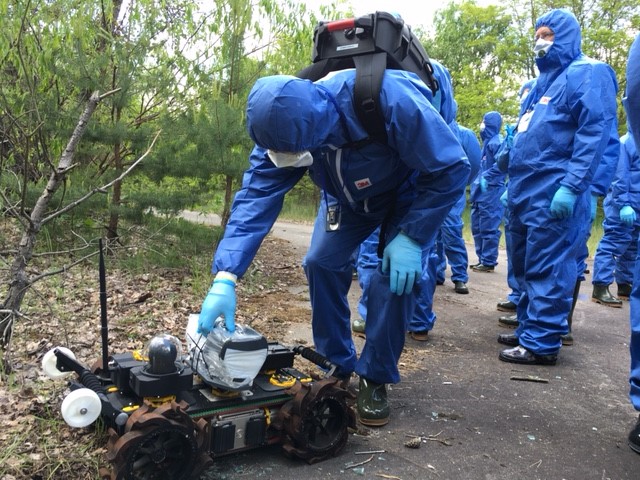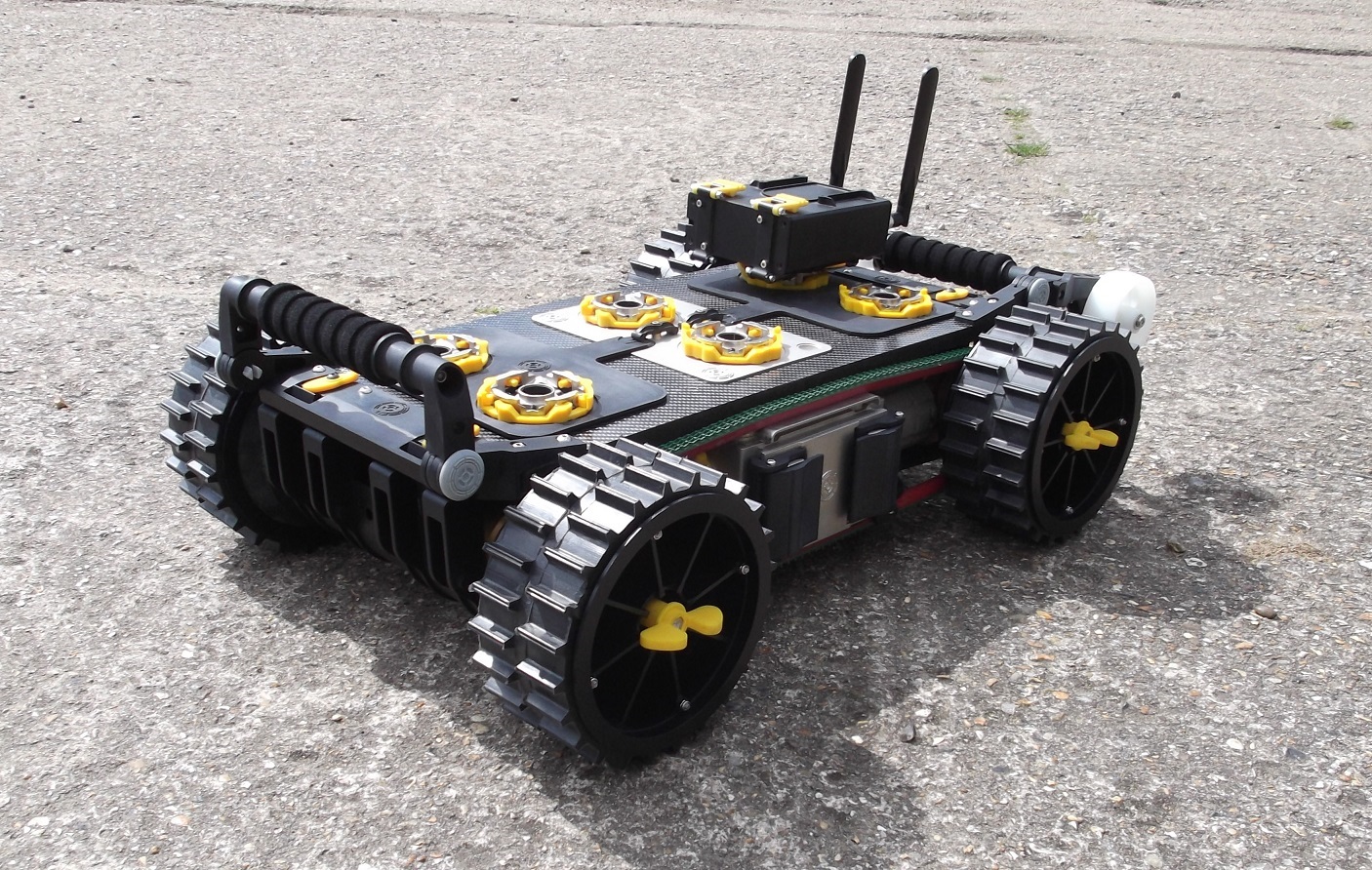Ross Robotics will be incubated in the STFC CERN BIC for 12 months where they will be able to access STFC and CERN intellectual property (IP), technologies and expertise. As well as this, they will receive £40,000 in grant funding to support the commercialisation of their robotic platform. We had a chat with Ross Robotics to find out more about their technology and what they hope to acheive in the next year.
1. Tell us a little bit about Ross Robotics
Ross Robotics Limited is a privately held UK Company specialising in modular robotics. We have developed and manufacture an adaptable, robust and cost-effective robotic delivery platform. The modular system enables robots to be rapidly re-configured to perform a wide variety of tasks. An expanding portfolio of sensors and tools can be deployed on the platform separately or simultaneously in Plug & Go mode. Our patented universal connector means robots can be easily re-configured and maintained by non-specialist personnel and with only minimal training. The robots can be kept operational 24/7 by simply replacing modules. Our design and development incorporates not only the latest technological advances in materials, software and electronics, but also draws inspiration from abilities and solutions seen in the natural world. Invented and developed by co-founder Philip Norman, our robots are designed to withstand high levels of radiation and strong magnetic fields and are capable of traversing difficult terrains and obstacles.
 Ross Robotics demonstrating one of their robots at Chernobyl nuclear power station.
Ross Robotics demonstrating one of their robots at Chernobyl nuclear power station.
2. How is your technology connected to CERN?
The Ross Robotics modular platform is being adapted by CERN for use in the Large Hadron Collider. Due to the size and complexity of the LHC the operational and maintenance challenges are many and varied. To date the installations outside Geneva have been managed and maintained almost uniquely by human personnel. That is all set to change as rising background radiation levels are making it necessary to progressively 'robotize' these procedures. Currently, robots are being used to monitor operations in real time and, in some cases, to perform routine maintenance and repair tasks. Going forward, the number and sophistication of these tasks is anticipated to grow. Ross Robotics has entered into a formal collaboration with CERN to harness the best expertise at CERN and to match this with the expertise in modular robotics gained by Ross Robotics in developing the platform, and in so doing, to co-develop increasingly sophisticated modular robotic solutions.

3. How do you think you will benefit from the STFC CERN BIC?
Ross Robotics is currently embarking on the commercialisation of the robotic platform. The STFC CERN BIC provides our Company with a technologically sophisticated environment within which to operate on a day-to-day basis: relevant expertise is on hand both in the technology and in the business development spheres. We have active collaborations on the Harwell site and see the process as an important de-risking of the next phase.
4. What are your plans for Ross Robotics during your time at the STFC CERN BIC?
We have three main themes for our first year on the Harwell Campus.
1. To complete the productization of the Scale 2.0 robotic platform with assistance from Companies and experts on the Campus as well as from sources beyond.
2. To refine our business strategy and to move forward with its implementation.
3. To consolidate the dynamic of the Platform technology through wider commercial traction and active Application development by third parties.
Find out more at their website

